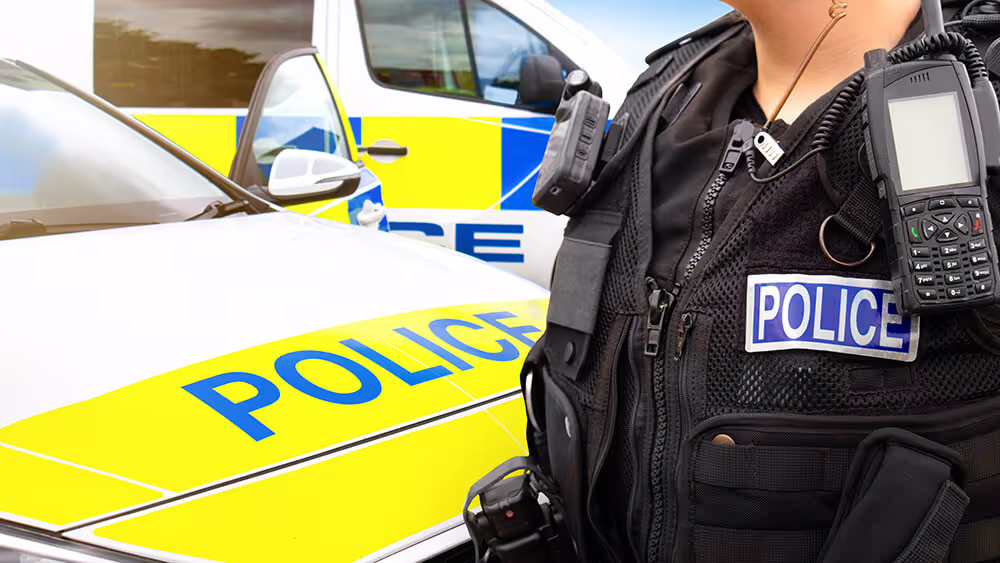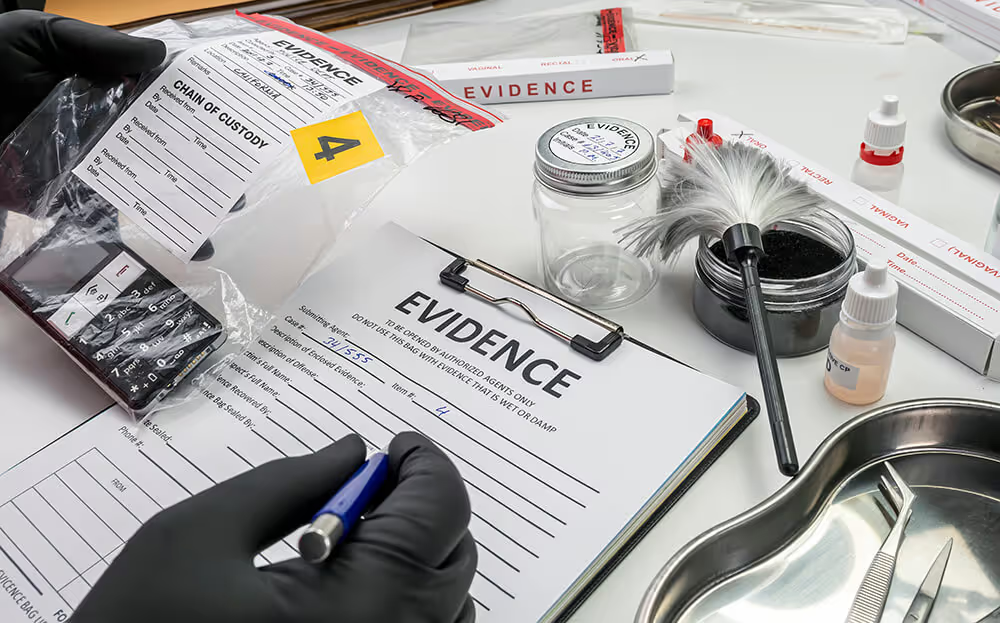Can the Police Take Your Phone?


In today’s world, our mobile phones are far more than just communication devices. They hold thousands of conversations, work materials, and banking details. This is why they are often the targets for thieves. But what happens when they become targets of the police?
In recent years, police have tried harder to get digital evidence before charges are made. Our devices have become very important for investigators. This raises a pressing question: can police take your phone in the UK? And if they do, what rights do you have to protect the information on that device?
Having your mobile taken by the police can be both disruptive and stressful. It can cut you off from your contacts, affect your job, and invade your privacy. In this article, the experts at Holborn Adam will explain why phones are so important to investigations. We will also discuss the laws that govern mobile phone seizure in the UK and what happens to your device once it is taken.
Finally, we will highlight how early legal advice and pre charge representation can help limit police overreach, protect your privacy, and safeguard privileged communications.
Why Phones Are Central to Modern Investigations
A modern mobile is like a digital diary for the user. It contains messages, photos, browsing history, location data, and even health records. For investigators, this information can paint a detailed picture of someone’s life, which is of obvious interest if that person is suspected of a crime. Given this fact, it seems natural that requests for pre-charge investigation digital evidence have increased across all case types, from financial crime and fraud to assault and harassment.
Police justify mobile seizures by saying they need to secure evidence and prevent data deletion. In some cases, the phone data they obtain will go on to drastically shape the outcomes of the case, either by confirming allegations or disproving them. For example, call logs or GPS history can place someone at the scene, or prove they were somewhere else entirely.
But the same breadth of information that makes phones useful also makes seizures risky. Phones frequently contain private material that may have nothing to do with an investigation, raising concerns about fairness, privacy, and misuse. So, can police take your mobile? The answer is both simple and complicated.
The Legal Basis for Police Phone Seizures
Police powers to take phones come from several laws, most notably the Police and Criminal Evidence Act (PACE) 1984. Under PACE, officers can seize property if they believe it contains evidence relevant to a crime. There are three main situations where this can happen:
- When you are arrested – When you are taken into custody, police may seize your phone if they believe it holds evidence connected to the alleged offence.
- When police have a search warrant – If officers have a court-issued warrant to search a property, they can take phones and other devices that may contain relevant evidence.
- During a stop-and-search – If police reasonably suspect you are carrying stolen or prohibited items, they may search you in public and seize your phone if it could be evidence of a crime.
When discussing mobiles being confiscated by police, it is important to distinguish between seizure and extraction. Seizure means taking possession of the device. Extraction means accessing its data. In the case of the latter, investigators will often use advanced forensic tools to bypass security, recover deleted files, and view encrypted apps.
When it comes to how potential digital evidence is handled, other laws come into play. These include the Investigatory Powers Act 2016 and the Regulation of Investigatory Powers Act (RIPA) 2000, which provide frameworks for accessing stored communications and intercepting data. These laws aim to balance investigative needs with privacy rights. However, critics argue the balance often tips in favour of the state.
What Happens After My Phone is Taken by Police?
Once seized, your phone is stored in a police evidence facility. Upon obtaining possession, officers may conduct a “triage” to quickly extract key data, or they may perform a full forensic download. This process can take time. In many cases, phones are held for months or even years while investigations continue
Forensic extraction tools are sophisticated and can allow police to unlock devices, recover deleted material, and even analyse patterns of use. While this can help prove or disprove allegations, it also means sensitive personal information is exposed to scrutiny.
Obviously, the impact on daily life can be significant. Being without your mobile can disrupt your work, cut you off from important contacts, and lead to additional stress. This is especially true of professionals, as losing access to their devices can affect both client relationships and business operations.
Your Rights When Police Seize Your Phone
Whenever you have an interaction with police, it is essential that you contact legal representation as soon as possible. However, you should also be aware of what your rights are regarding your mobile devices.
Right to Privacy
The Human Rights Act (Article 8) gives you the right to privacy. It likewise states that any interference with that right must be lawful, necessary, and proportionate. That means police cannot use data in unlimited ways. Rather, their actions must be directly tied to the investigation.
Legal Privilege
Another important protection is legal privilege. This means that communications between you and your solicitor cannot be accessed, even if they are stored on your phone. This is important because if privileged material is examined, it may render the entire seizure unlawful.
Right to Challenge
You have the right to challenge a seizure if it is unlawful or unfair. In such cases, courts can exclude evidence or order the return of devices. Again, having a solicitor present during interviews where digital evidence is discussed is vital, as it helps ensure that police phone data rights are respected.

Precharge Investigations and Digital Evidence
The rules around digital evidence differ depending on whether or not charges have been filed. At the pre-charge stage, police frequently request full downloads of phones, laptops, and other devices, even when only a fraction of the material is relevant to the allegations. This approach can feel excessive, raising legitimate concerns about privacy, proportionality, and the potential misuse of personal data.
While the Crown Prosecution Service applies an evidential test before deciding whether to charge, digital material can play a major role in that decision. Yet critics warn that so-called “fishing expeditions”—where vast amounts of personal information are trawled in the hope of finding something incriminating—risk undermining the very principles of fairness and justice that the system is meant to uphold.
This raises yet another important question: “Can the police look at everything on your mobile?” It is a common misconception that police have unlimited access to your phone once they take it. This is not true.
In recent years, police have tried harder to get digital evidence before charges are made. Still, the principle of proportionality means that only data relevant to the alleged offence should be examined. But once again, while oversight mechanisms exist, they can be limited in practice.
In theory, if sensitive or irrelevant personal material is uncovered, it should not be used against you. However, public concern has grown about whether safeguards are strong enough to protect privacy, as several high-profile cases have already shown how leaks or improper use of data can damage reputations.
How Precharge Representation Protects Your Phone Data
Early legal representation can make a significant difference in protecting phone data. The instant the device is confiscated, an experienced solicitor should step in to challenge the scope of extraction requests, ensuring they are limited to relevant material. They can also safeguard against breaches of privilege and push for the early return of devices.
In some cases, solicitors can present digital evidence proactively, showing investigators material that supports the client’s innocence while keeping irrelevant data out of view. This approach not only protects privacy but can also influence charging decisions in the client’s favour.
Holborn Adams: Our Approach to Digital Defence
At Holborn Adams, we understand how disruptive a mobile phone seizure can be. The good news? Our solicitors have a proven track record of limiting police digital overreach in precharge investigation digital evidence cases. Whenever possible, we prefer to take a proactive approach, working hand-in-hand with investigators to narrow the scope of data seized and push for the early return of devices.
But our expertise goes even further. We have a long history of handling high-profile and sensitive investigations involving phones, laptops, and other devices, and can even offer crisis management strategies if digital material is leaked to the media.
“Can police take your mobile in the UK?” Yes. However, that doesn’t mean they have unlimited access to your private materials. Know your police phone data rights in the UK, and ensure fair treatment with Holborn Adams precharge representation.




